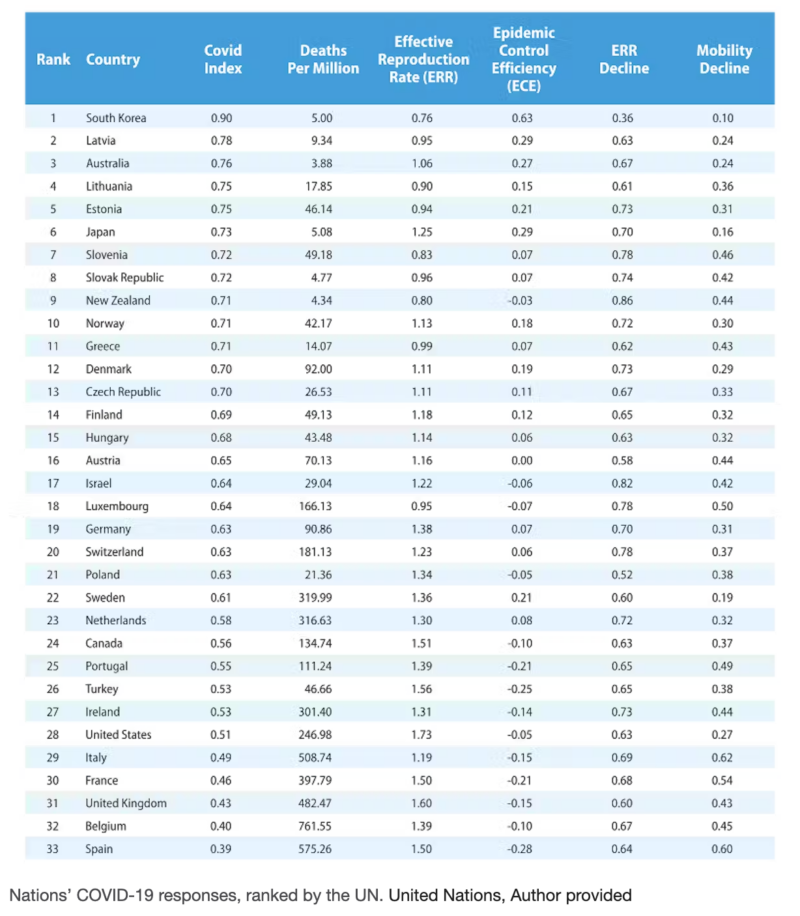COVID response report finds that public trust eroded by government response
Back in September 2023, Prime Minister Anthony Albanese MP announced an independent inquiry into Australia’s response to the COVID-19 pandemic – with the results being made public this week.
While the review applauds the governments ‘decisive’ action in the early stages of the pandemic (Australia ranked third among OECD countries for the effectiveness of its response to the COVID-19 pandemic), it does warn that significant damage was done to the public’s trust over extended lockdowns that were poorly communicated.

The report outlines that “courageous decisions” taken by leaders early in the pandemic helped to stem our pandemic death toll, including closing the international border, agreeing a national lockdown and moving to support jobs through a nationwide wage subsidy scheme. However, issues in our response started to emerge as the pandemic wore on, with communication deemed inadequate, leading to low public confidence.
The Inquiry heard that there were many reasons for the decrease in trust, with some variation within and between jurisdictions. However, common drivers included concerns about the lack of transparency in and supporting evidence for decision?making, poor communication, the strictness and duration of restrictions, the implementation of mandated measures, access to vaccines and inconsistencies in state and territory responses.
As stated in the inquiry, “The challenge before us is re?establishing and building trust in government responses prior to any future public health emergency. We cannot assume that the public will comply with similar restrictions in a future public health emergency. In particular, people’s willingness to comply with a near-term crisis will depend on experiences during the COVID?19 pandemic.”
In an article from the ABC, the reviewers warned, “In future, Australians will only have an appetite for short, sharp lockdowns, if any at all, and there would probably be decreased public compliance.”
They argued that there was a strong perception from the community that some of the restrictions handed down, like curfews and movement restrictions, were more about policing than supporting the health response. And warned state governments that a “smoke and mirrors” communication strategy about the need for restrictions further damaged community trust, especially when those restrictions were put in place around concern for hospital and health care capacity.
As stated by the reviewers, “It does not pay to underestimate that media’s and public’s ability to see through [this].”
The review also made some key recommendations for future pandemics, focusing on better preparedness and co-ordination between levels of government, and studies of the impact on children and on population-wide mental health.
In a recent address to the media, Health Minister Mark Butler stated that the erosion of public trust meant that we are even less prepared for a pandemic than we were for COVID-19.
“The striking conclusion, I think, from this report is that right now we are arguably worse-placed as a country to deal with a pandemic than we were in early 2020.”
The report used nine guiding recommendations that are aligned with nine pillars of a successful pandemic response, which are:
- Minimising harm: Acknowledging harm caused by a pandemic and the response, and the importance of mitigating impacts.
- Planning and preparedness: Robust systems and effective planning before, adaption during and review after the event.
- Leadership and coordination: Leadership, clarity and coherence in roles and responsibilities.
- Evidence and evaluation: The appropriate generation and use of fit?for?purpose evidence and evaluation in an uncertain and fast?evolving environment.
- Agility and innovation: The ability to move quickly and respond in an uncertain and changing risk environment.
- Relationships: Strengthening relationships and networks between systems, organisations and governments.
- Trust: Building and maintaining trust in government, institutions and experts.
- Equity: Monitoring and accounting for differences across the population in risk factors, and impacts arising from, the pandemic disease, and the design and delivery of public health measures.
- Communications: Effective, tailored, timely, evidence?rich information sharing from respected and authoritative sources.
For rebuilding trust, they preposed:
- Develop and agree on transparency principles for the release of advice that informs decision-making in a public health emergency.
- Develop a national strategy to rebuild community trust in vaccines and improve vaccination rates.
The report summary also provides guiding principles and priorities for implementing the Australian Centre for Disease Control in 2026 – an organisation, “that brings together critical information and leading expertise to deliver better health advice to governments and improve health outcomes for the Australian population.” The CDC is viewed as an important addition to the public health infrastructure in Australia to strengthen our preparedness and improve our resilience for any future pandemics to come.
That there will be more pandemics to come is the one surety in the document, with the reviewers stating, “We know that another pandemic could occur at any time, and it is imperative that governments are prepared. We know that the next pandemic may involve a more lethal virus that is harder to contain. We know that a future pandemic is likely to be compounded by concurrent crises which include natural disasters, cybersecurity threats and geopolitical tensions.”
“Next time, we cannot say it was unprecedented. We must act now to apply lessons learnt during the COVID?19 response to strengthen our national resilience to the next crisis and avoid repeating the same mistakes.”
As of late October 2024, Australia has recorded approximately 12 million confirmed cases since the start of the pandemic, with over 25,700 deaths attributed to COVID-19. Vaccination efforts have remained substantial, with over 71 million doses administered, including the updated monovalent vaccines targeting Omicron variants.




